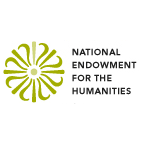Korans
- Term Type
Art & Architecture Thesaurus
- Preferred Term
Korans
- Details
Refers to the sacred scriptures of Islam, believed by Muslims to be the word of Allah and revealed to the prophet Muhammad between 610-632 CE by the angel Gabriel. The text may be embellished with geometric and vegetal decorations, but the traditional prohibition against representing living creatures is applied with particular force to texts of the Koran. Paintings illustrating narrative passages of the Koran never appear in manuscripts of the Koran itself, although they do appear in manuscripts of texts inspired by its themes. A definitive text of the Koran is believed to have been established within 30 years of Muhammad's death; it has remained unchanged since. The Koran comprises 114 chapters, or suras, which are roughly arranged by decreasing order of length, and primarily written in the voice of God. The text is poetry rather than prose, and as such is less concerned with narrative flow. In general, the early suras focus on summoning worshipers, appeals to worship one God, social justice, and stories of unbelieving peoples. The later suras contain social material and prescriptions concerning marriage, the family, ethical matters, and the Muslim community. The Koran has been the main source of Islamic legislation on issues ranging from divorce, times of worship, fasting, and warfare. It is frequently recited or chanted for devotional and liturgical purposes.
- Variations
Koran
Qu'rān
Qurans
Quran
Qu'rāns
Korán
Core
Currawn
Coran
Kuran
Kurán
Alcoran
al-Qur'an
Alkaron
Alkaroun
Al-Coran
Alchoran






